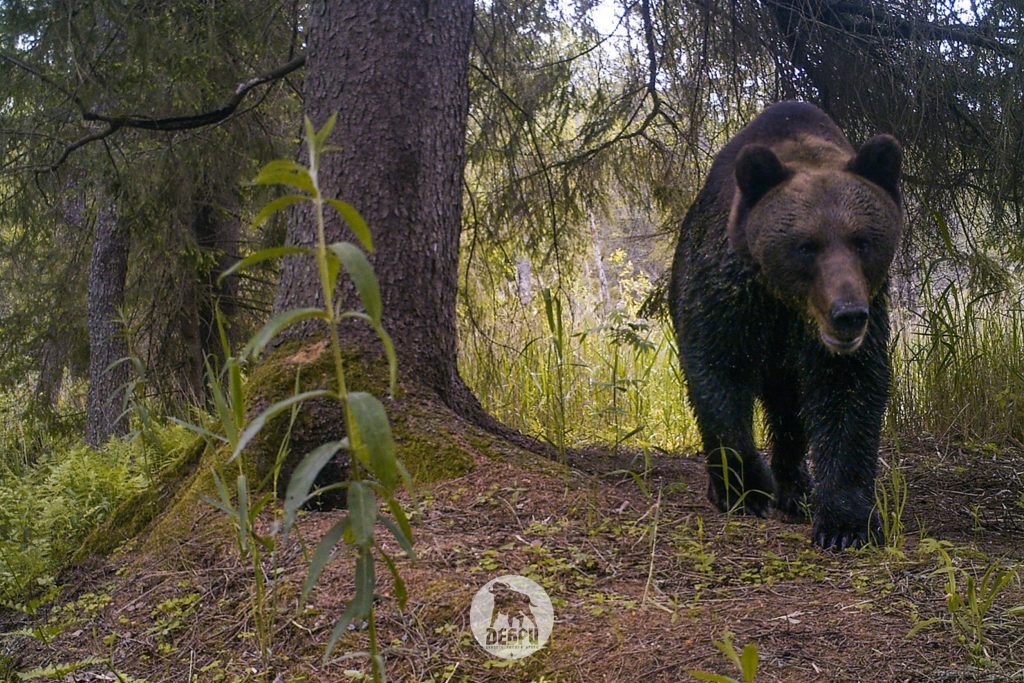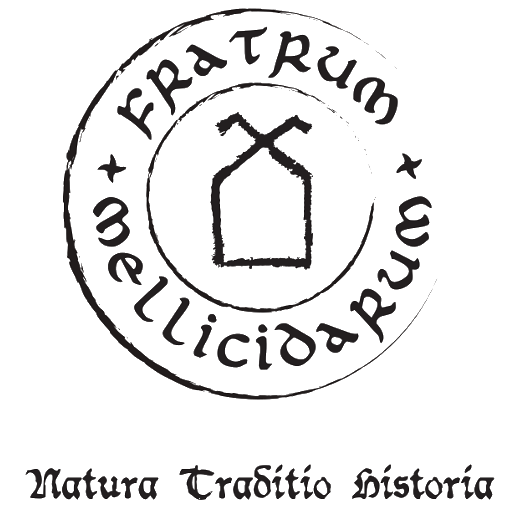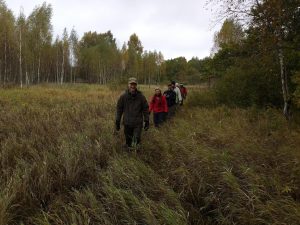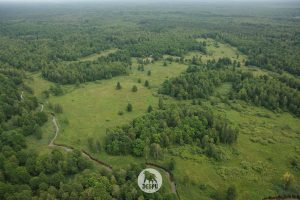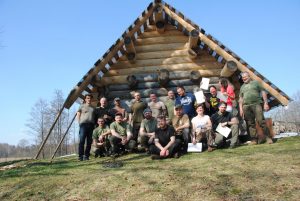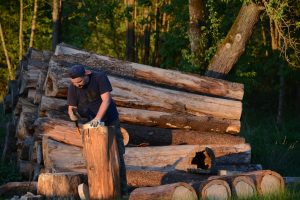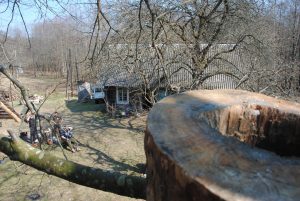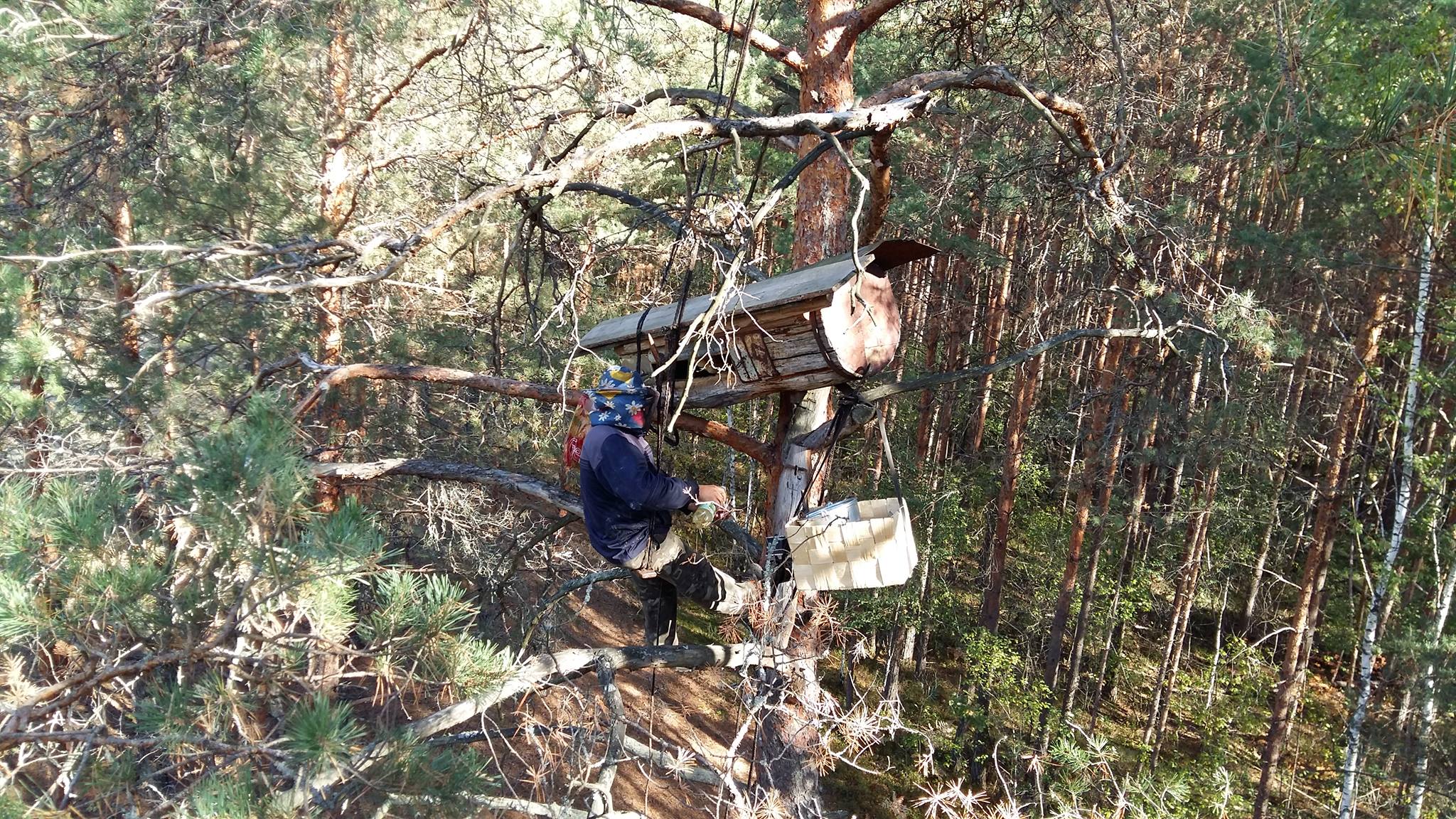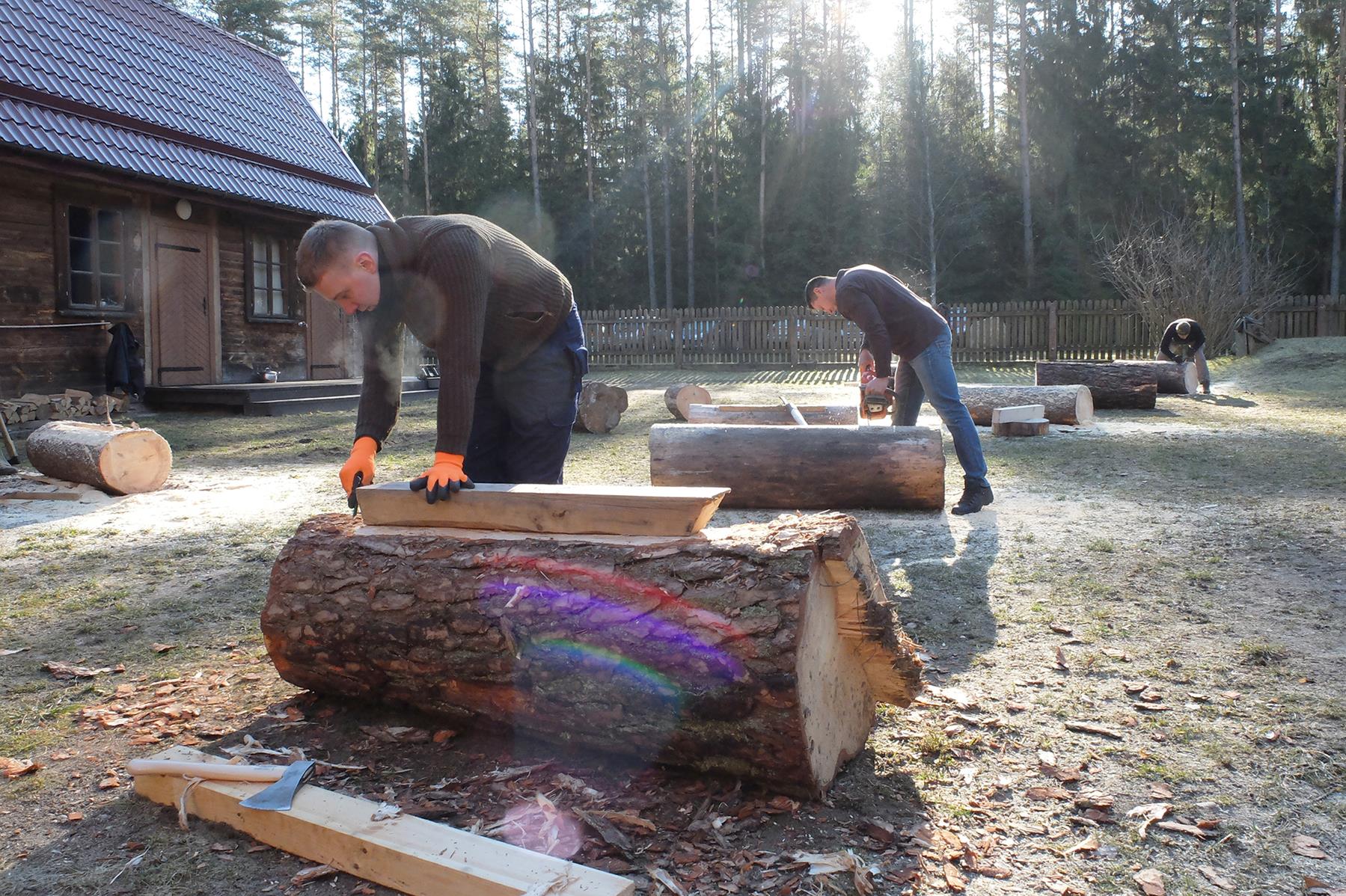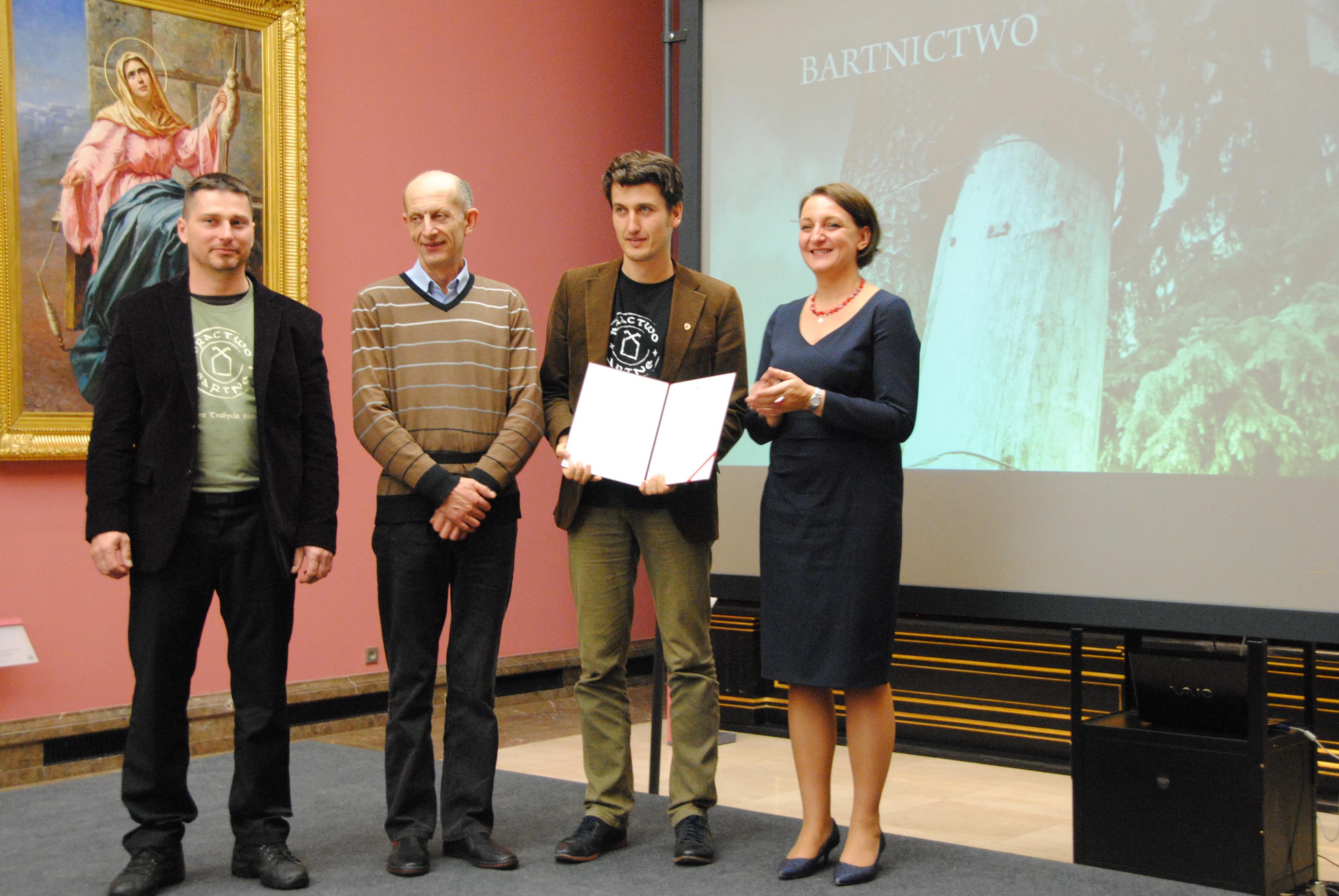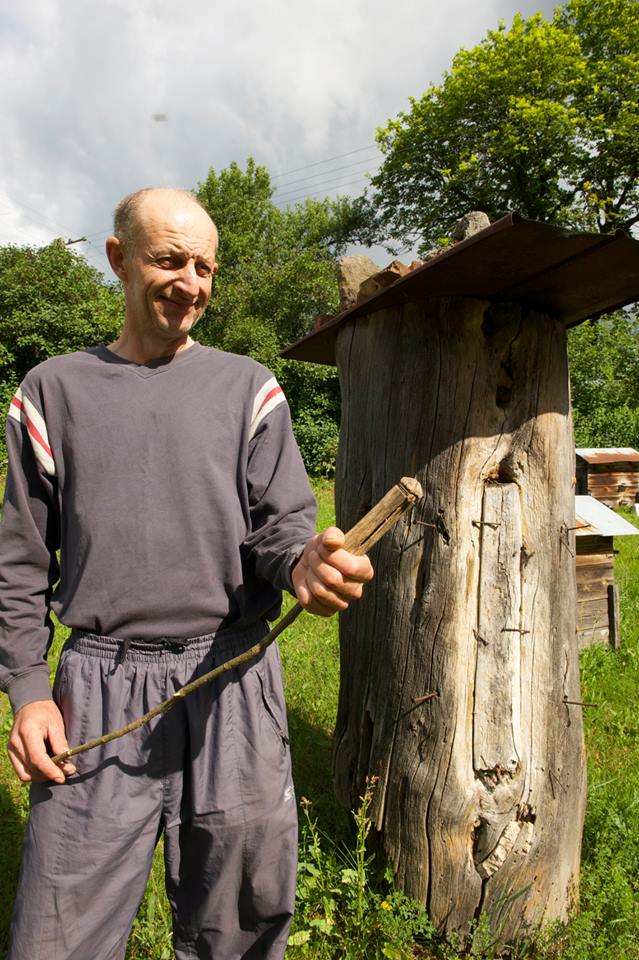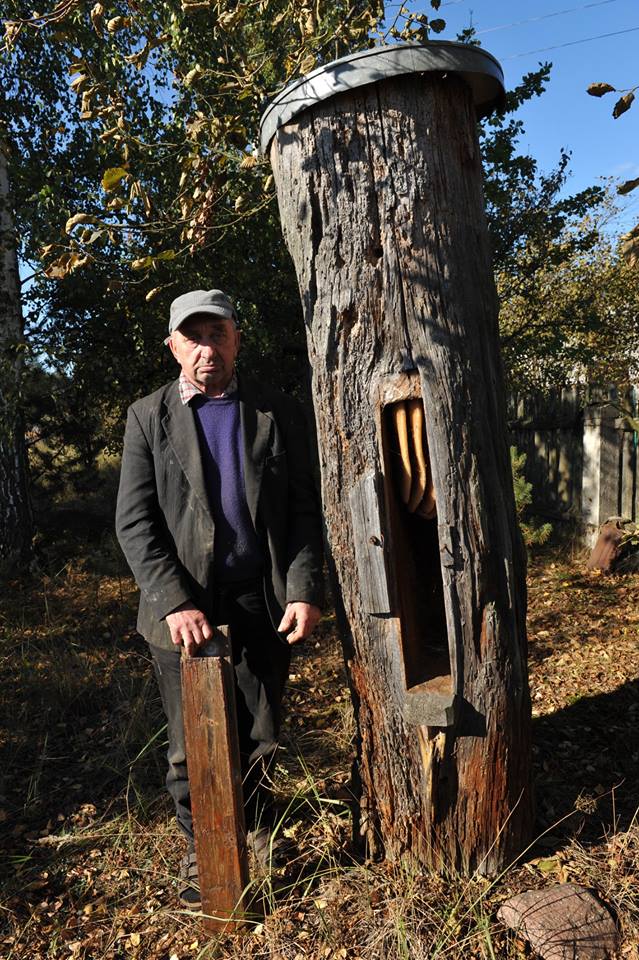In 2017 we plan to run three international tree beekeeping workshops. Two will be run in the Augustów Forest, where our organisation has more than 25 tree and log hives. This is one of the biggest forest complexes in Poland and our hub of activity. It is here that we found the remains of tree beekeeping traditions and are working together with the National Forest authorities to revive them.
The second place for our workshop is the remote area of Nalibocka Forest – the biggest forest complex in Belarus – located only 90 km west of Minsk. Fratrum Mellicidarum has members on this side of the border as well, showing and promoting tree beekeeping as a part of our common heritage – which we would like to share with you!
Our workshops are not only about learning and discovering the beautiful tradition of tree beekeeping or focusing on local specifications and practical knowledge, but also about relaxing and feeling at home in our wild nature. Our workshops also help our organisation’s mission of protecting the local Apis Mellifera Mellifera bee, which lives in the Augustów and Nalibocka forests.
Workshops in 2017:
1) 24-26.03.2017 – Tree beekeeping workshop in Poland, Augustów Forest, north-east Poland
2) 31.03-2.04 – Tree beekeeping workshop in Belarus, Nalibocka Forest Belarus (Minsk Area)
3) 13-15.10.2017 – Tree beekeeping workshop in Poland, Augustów Forest, Poland
All of our workshops are led by experienced tree beekeepers from our organisation: Piotr Pilasiewicz (PL), Ivan Mulin (BY), Paweł Kotwica (PL) and Paweł Mikucki (PL) .
Reserve a place for you and your friends now, in our exceptional workshop. Sign up by sending an email to fundacja@bartnictwo.com with your details:
We will send you a reply with instructions on how to secure your place by paying a deposit of 100 Euros, either by bank transfer or Paypal.
If you’re thinking of organising a workshop at your place, please contact us so that we can help you, supply tools and offer our experience and knowledge as workshop leaders.
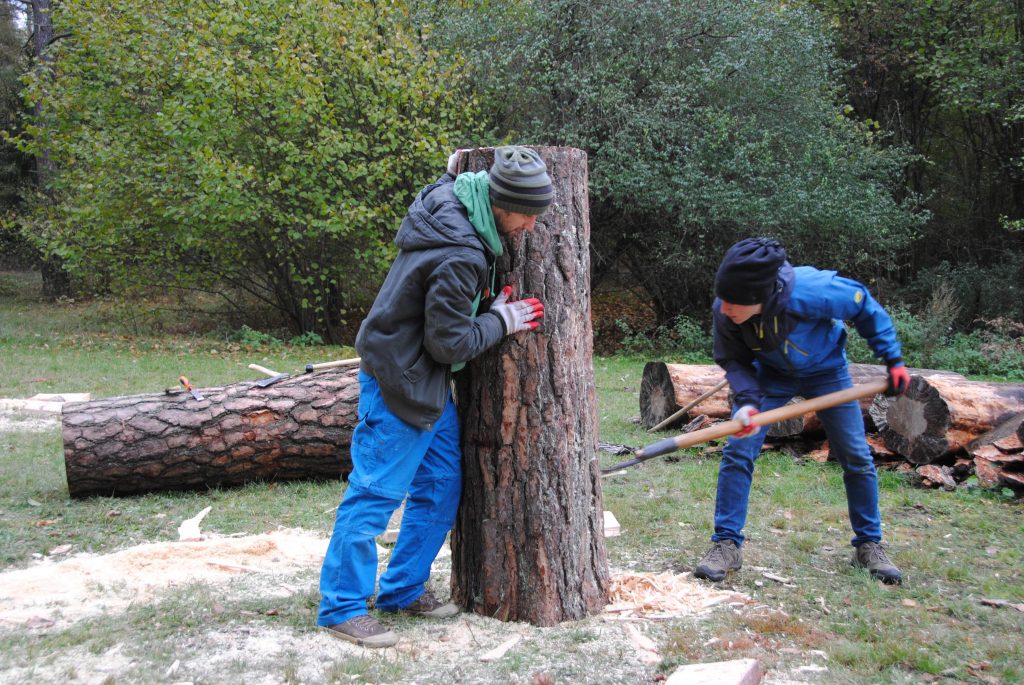
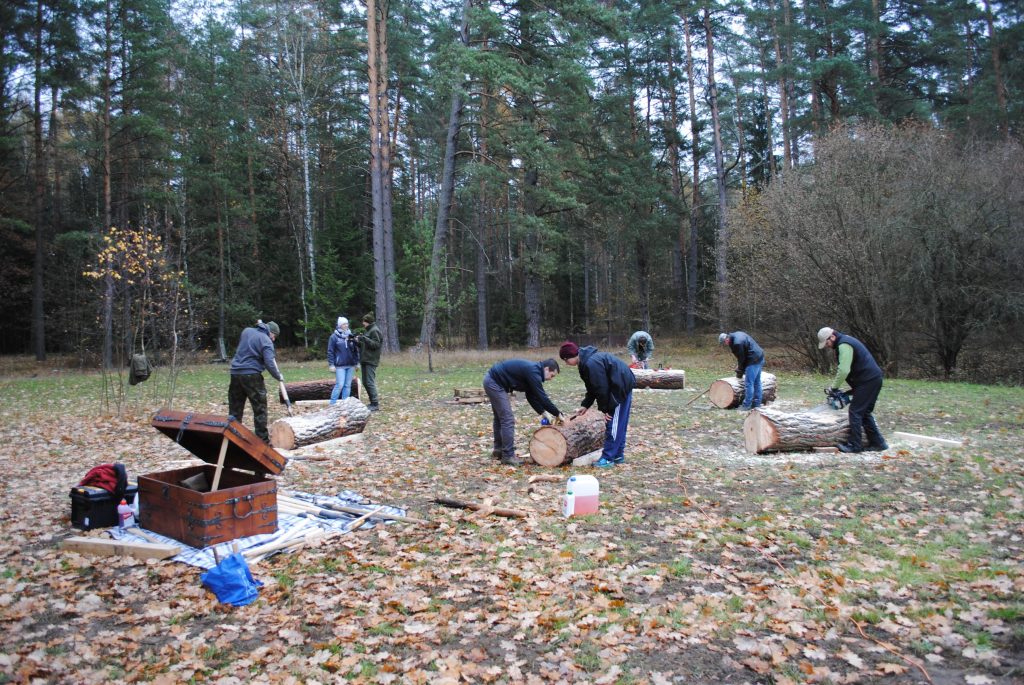
Details:
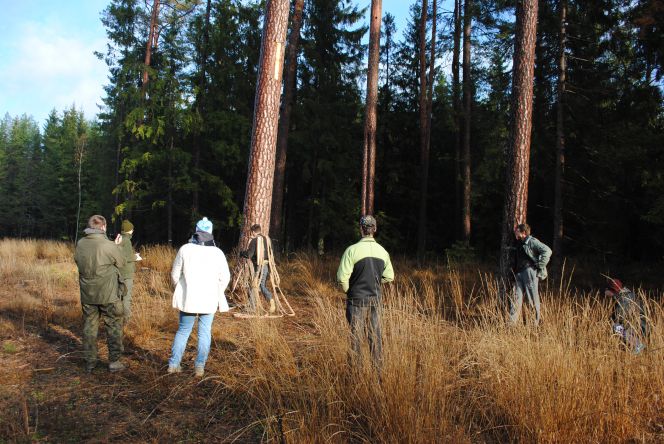
- 30.03-2.04 1st Tree-beekeeping Workshop in Nalibocka Forest, (Belarus).
Participants will work in pairs using a chainsaw and traditional tools to make a log hive out of pine wood. The work will be carried out under the supervision of two experienced tree beekeepers – one from Poland and the other from Belarus; both English-speaking. The workshop program includes discovering the tree beekeeping traditions specific to central Eastern Europe, gaining skills in log making, learning practical knowledge of hanging them in and attaching them to trees, as well as attracting and keeping bees in this kind of hive. We’d also like to show our guests the wild nature of Nalibocka Forest, which is the biggest forest complex in Belarus. The workshop will be held in the most remote part of this forest on a small island surrounded by swamps and wood, 11 km from the closest village and more than 3 km from the closest neighbour. Accommodation is basic and simple: a house with two big rooms and an outside sauna for relaxing after a hard day’s work. Meals will be prepared and served by a local cook on site. We’ll spend three days together working, learning and exploring the beautiful wild nature of Nalibocka Forest. Sleeping bags and warm clothes are essential.
Together we will setup two logs in trees and do the first spring check. In addition to log making, participants will learn about the trees suitable for making tree hives, how to choose a suitable place to hang a log hive, how to attract swarms to a log/tree hive, and gain basic skills in the use of the leziwo – the traditional rope with seat used by tree beekeepers in the former Polish-Lithuanian Commonwealth.
Cost: 210 EUR / person including accommodation, insurance, breakfast and lunch.
Shuttle from Minsk and back to Minsk Airport +40 EUR
Reserve a place for you and your friends now, in our exceptional workshop. Sign up by sending an email to fundacja@bartnictwo.com with your details:
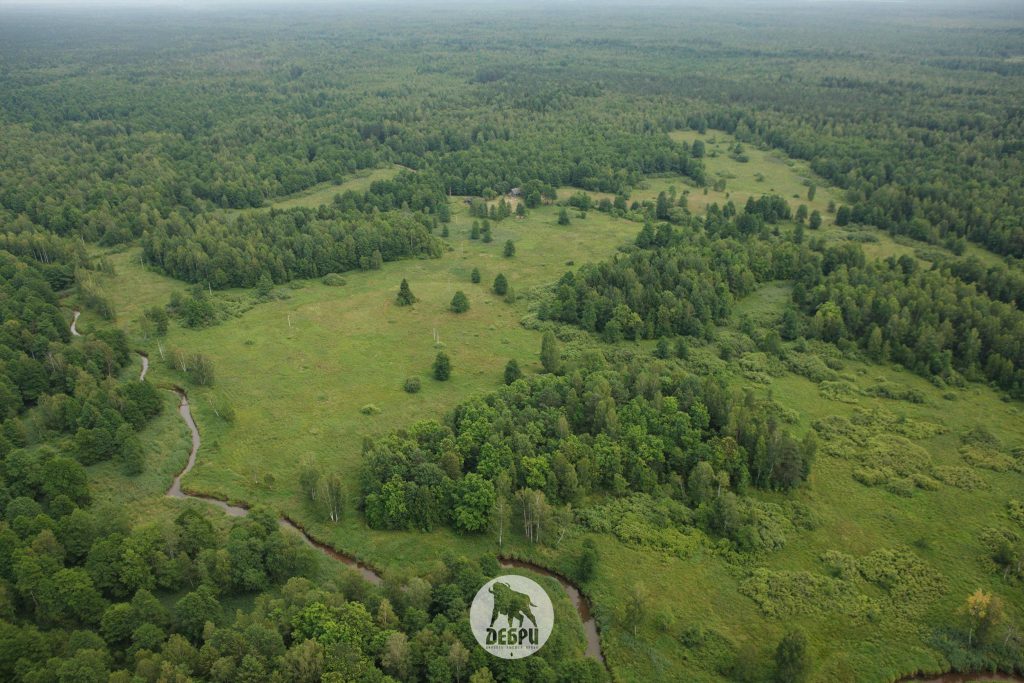
- 13-15.10.2017 5th Tree-beekeeping workshop in Augustow Forest
Log making workshop. participants will work single or in pairs using a chainsaw and traditional tools to make a log hive out of pine wood. No sauna this time, unfortunately. The work will be carried out under the supervision of two experienced tree beekeepers. We will hoist one of the ready log hives into a tree and prepare some of our settled hives for winter. In addition to log hive making, participants will learn about the trees suitable for making tree hives, how to choose a suitable place to hang a log hive, how to attract swarms to a log/tree hive, and gain basic skills in the use of the leziwo – the traditional rope with seat used by tree beekeepers in the former Polish-Lithuanian Commonwealth. The workshop will be held at the forest ranger’s guest house, Lipiny, just a few hundred meters from the Belorussian border, in the heart of the Augustow Forrest.
Cost: 170 EUR / person including accommodation, insurance, breakfast and lunch.
Sign up today, we’re waiting for you!
